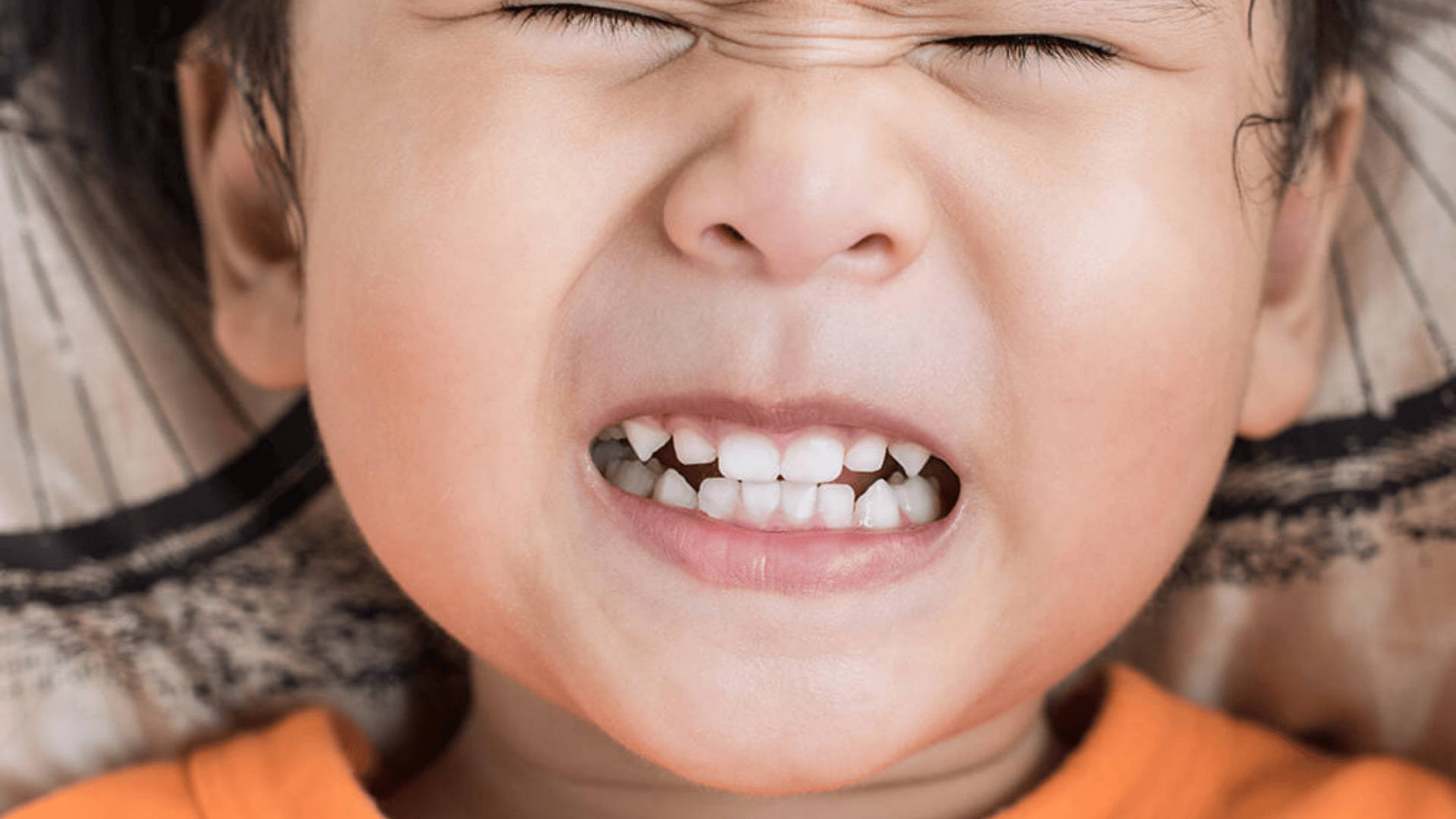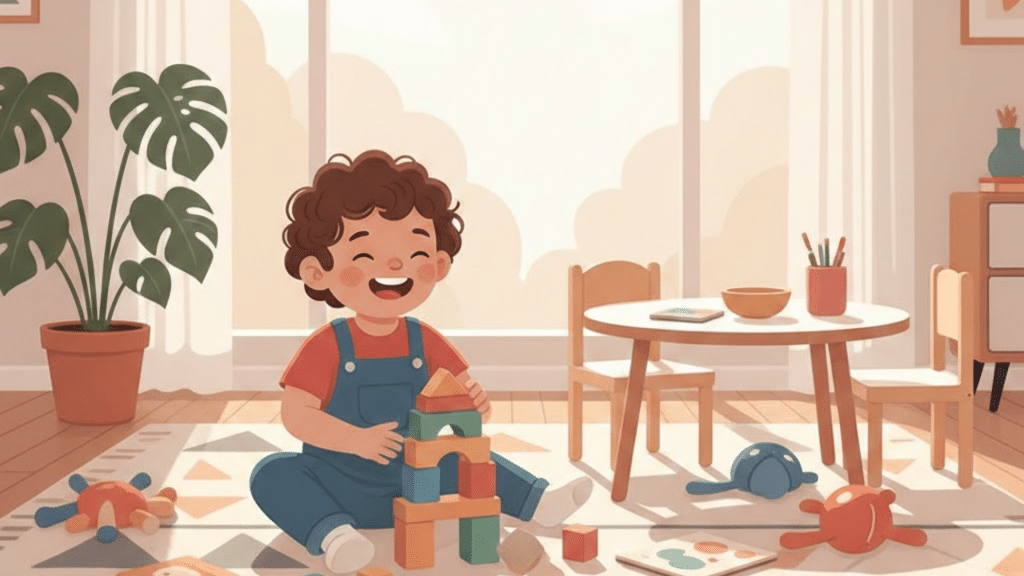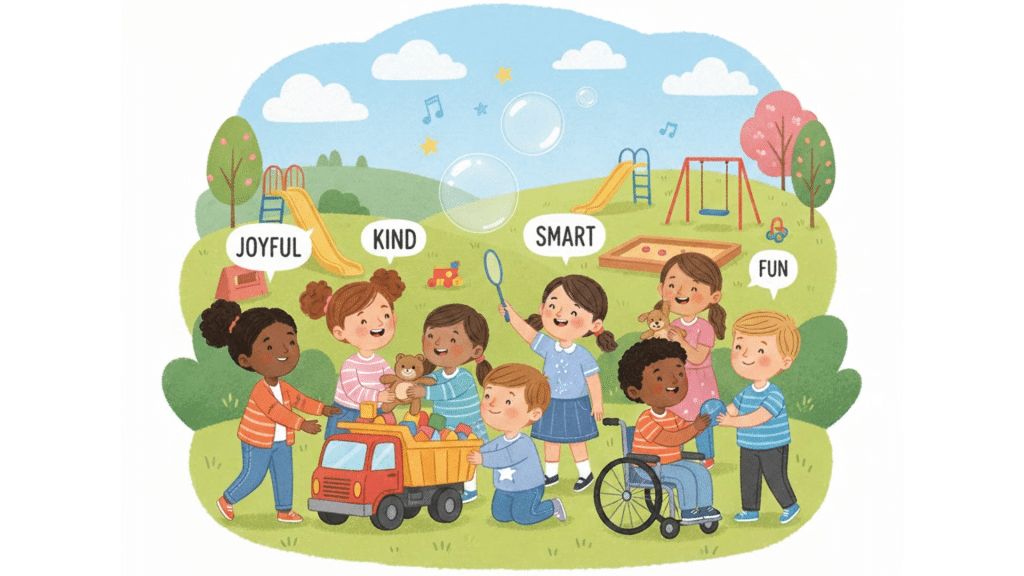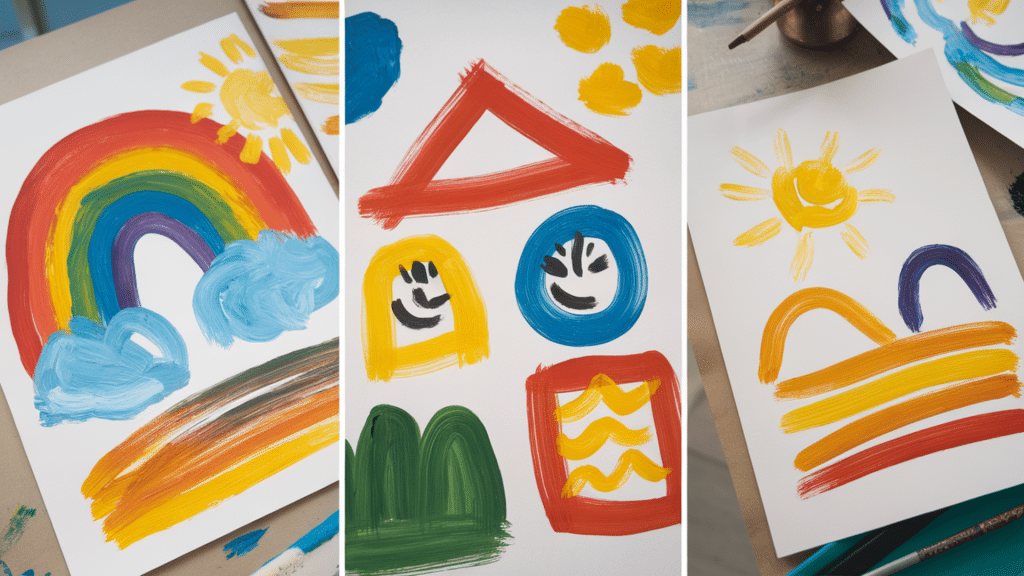If you’ve ever noticed your child grinding teeth in sleep, you’re not the only one out there. Many parents are surprised by the loud sounds or restless nights it can cause, and they wonder if it’s just a phase or something more.
While it’s common in children, grinding can sometimes point to stress, growth changes, or even sleep-related issues. Understanding the reasons behind it helps you know when to relax and when to take action.
In this blog, I’ll walk you through the common causes, signs to watch for, home care tips, and when it’s time to see a doctor to take care of your kid.
Now, let’s start by understanding what teeth grinding really means for children.
What is Teeth Grinding (Bruxism) in Children?
Teeth grinding, also called bruxism, happens when a child clenches or grinds their teeth without meaning to. Teeth grinding in sleeping kids is most common, but it can also happen while awake.
Doctors consider bruxism a common childhood condition. Many kids grind their teeth at some point, especially between the ages of 3 and 10.
For most children, it is mild and temporary, but in some cases, it can last longer or cause dental issues.
Why Children Grind Their Teeth

Kids may grind their teeth for many reasons. Some are temporary, while others may need attention from a dentist or doctor.
1. Stress and Anxiety
When kids feel nervous, worried, or even overly excited, their bodies don’t always relax at night. Grinding can be one way their tension shows up during sleep.
I’ve seen it happen during school tests or big changes at home, and it often eases once life feels calmer. Helping your child find ways to relax before bed, like reading together or using a bedtime routine, can make a difference.
2. Misaligned Teeth or Bite Issues
When teeth don’t fit together properly, the jaw works harder to find a comfortable position. This extra strain can lead to grinding during sleep.
As children grow, their teeth and jaws change, which can temporarily cause misalignment. A dentist can check if orthodontic care is needed.
3. Growth and Teething Phases
Grinding is common in toddlers because their teeth and jaws are still developing. As new teeth come in or the bite changes, their mouth may feel different, and grinding is the body’s way of adjusting.
For older kids, sudden growth spurts in the jaw can also cause temporary grinding until everything balances out again.
4. Sleep Disorders (Apnea, Snoring)
Grinding isn’t always about the teeth. In some children, it’s connected to breathing problems during sleep.
If your child snores loudly, pauses in breathing, or seems restless at night, grinding may be part of a bigger issue like sleep apnea. That’s when checking with a doctor or sleep specialist is especially important.
5. Genetic Tendencies
Some children inherit the habit from their parents. If you or another family member ground your teeth as a child, there’s a stronger chance your child might do the same.
In these cases, it often follows the same pattern, mild, temporary, and fading with age, but it’s still good to keep an eye on.
Age-specific notes:
- In Toddlers: Grinding teeth in sleep usually comes with teething and changes in the bite. Most outgrow it without treatment.
- School-age kids: Stress from school, shifting teeth, or minor bite problems are common causes.
- Teens: Academic pressure, sports stress, and social changes often make grinding more noticeable.
Most of the time, grinding is just a phase. Knowing the cause makes it easier to decide whether to wait it out or seek help.
Signs and Symptoms Parents Should Watch

It’s not always easy to know if your child grinds their teeth at night. Here are the most common signs you can look out for.
- Grinding sounds at night: If you’ve ever walked past their room and heard crunching or squeaking noises, that’s often the sound of grinding.
- Jaw soreness or morning headaches: Some kids wake up with a sore jaw or complain about headaches right after getting out of bed.
- Tooth wear or sensitivity: Grinding can wear down the teeth over time. You might notice flattened edges, chipped spots, or teeth that seem more sensitive than usual.
- Restless sleep or fatigue: If your child is tossing and turning at night, or seems extra tired during the day, grinding may be part of the problem.
These symptoms can be easy to miss at first, but once you know what to watch for, you’ll be able to spot them more quickly.
Daytime vs. Nighttime Teeth Grinding
Children can grind their teeth during the day or while asleep. Both forms may be harmless in the short term, but they should be watched closely if they continue.
| Type | Common Causes | What to Look For | Should You Worry? |
|---|---|---|---|
| Nighttime Grinding | Stress, misaligned bite, teething, and sleep disorders | Grinding sounds at night, sore jaw in the morning | Often temporary, but check with a dentist if it causes pain or tooth damage |
| Daytime Grinding | Stress, concentration habits, nervous energy | A child may clench or rub teeth together during focused tasks or stressful moments | Usually harmless, but worth monitoring if frequent or damaging |
Both daytime and nighttime grinding are common in kids. Most of the time, they fade on their own. Still, keeping an eye on the signs helps you catch problems early and decide if a dental check is needed.
Is It Harmful?
Most kids grind their teeth without lasting problems. Still, it helps to know when it matters.
Short-term vs. long-term risks:
In the short term, grinding might cause jaw soreness or light tooth wear. If it continues, it can lead to cracked teeth, lasting sensitivity, or jaw issues.
Potential links to ADHD and sleep apnea:
Some children who grind their teeth also show signs of ADHD or sleep apnea. Grinding alone isn’t proof, but it may point to something worth checking if other symptoms are present.
If your child has frequent pain, visible tooth damage, or disrupted sleep, it’s time to talk with a dentist or doctor.
How to Manage Teeth Grinding at Home
Here are a few simple things you can try at home to ease or prevent grinding:
- Relaxation before bedtime: A calming bedtime routine helps kids let go of tension. Reading together, taking a warm bath, or listening to quiet music can make it easier for the jaw to relax during sleep.
- Managing stress and anxiety: If your child is going through a stressful time, give them space to talk about it. Gentle activities like drawing, deep breathing, or evening walks can also reduce built-up stress that shows up at night.
- Correct sleeping positions: Some kids grind more when lying on their stomachs. Encouraging side or back sleeping may help reduce pressure on the jaw.
- Diet and hydration considerations: Sugary snacks, caffeine, and dehydration can all make grinding worse. Offering water before bed and keeping evening snacks light can support better sleep and reduce grinding.
These small changes won’t stop grinding overnight, but they often make it less frequent and easier for your child to rest well.
When to See a Professional

Most teeth grinding in kids fades with time, but there are moments when it’s best to bring in a professional.
Warning signs include ongoing jaw pain, teeth that look worn or chipped, or sleep that’s regularly disrupted.
If your child is waking up sore, having headaches, or you notice visible damage to their teeth, that’s a clear signal it’s worth making an appointment. These issues usually don’t improve on their own and may get worse if ignored.
During an evaluation, the dentist will look closely at your child’s teeth to check for wear or sensitivity. They’ll also ask questions about sleep patterns, daily stress, and any other health concerns.
Depending on what they find, the dentist may suggest a custom mouth guard to protect the teeth, orthodontic care for bite issues, or even a referral to a doctor if they suspect a sleep disorder like apnea.
Getting checked early can prevent bigger dental problems later and give you peace of mind knowing your child’s teeth and sleep are being protected.
Treatment Options
Not every child who grinds their teeth needs treatment. Here are the main options dentists may recommend:
- Observation: For many kids, grinding is a phase that fades on its own. Dentists often suggest simply keeping an eye on it unless there’s pain or damage.
- Custom night guards: A dentist can fit a soft or hard guard that protects teeth during sleep. It won’t stop grinding, but it prevents wear and damage.
- Orthodontic treatments: Braces or other corrective care may be needed if grinding comes from a misaligned bite or crooked teeth.
- Stress management techniques: Calming activities before bed, like reading or breathing exercises, can ease tension that triggers grinding.
- Medical evaluation: If there are signs of sleep apnea, ADHD, or another condition, a doctor may recommend further testing and treatment.
The right choice depends on your child’s age, symptoms, and overall health.
Age-Specific Considerations
Teeth grinding can appear differently as children grow, and the right response depends on their age.
| Age Group | Key Points | What to Do |
|---|---|---|
| Toddlers | Usually temporary, often linked to teething or adjusting to new teeth. It often fades on its own. | Provide comfort during teething and monitor if grinding continues. |
| School-Age Kids | Stress from school or changes in dental alignment can trigger grinding. | Maintain regular dental visits to catch bite or alignment problems early. |
| Teens | Often tied to anxiety, ADHD, or orthodontic issues. May last longer. | Seek advice from a dentist or doctor if grinding causes pain or tooth damage. |
Most children outgrow grinding at different stages, but paying attention to age-specific signs ensures problems are caught early and managed properly.
Wrapping Up
Teeth grinding in children can be worrying to hear at night, but in most cases, it’s only temporary.
Staying alert to subtle changes, like morning jaw soreness or restless sleep, gives you a head start on protecting your child’s teeth.
What matters most is steady monitoring and open communication with your dentist, who can guide you if the habit lingers. With patience and the right support, your child’s teeth and sleep health usually improve over time.
Looking for more helpful advice? Read my other blogs for simple, practical tips on caring for your child’s health and home.











